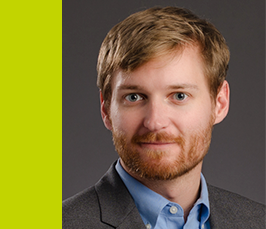Seminar: Long ties: Formation, social contagion, and economic outcomes
- Date: Jul 12, 2022
- Time: 03:00 PM (Local Time Germany)
- Speaker: Dean Eckles, Massachusetts Institute of Technology
- Location: Max Planck Institute for Human Development, Lentzeallee 94, 14195 Berlin
- Room: Small Conference Room
- Host: Center for Humans and Machines

© private
Dean Eckles, Massachusetts Institute of Technology
Long ties: Formation, social contagion, and economic outcomes
In this seminar, Dean Eckles will discuss his joint work based on two papers: one on threshold-based contagions with Elchanan Mossel, M. Amin Rahimian, Subhabrata Sen,
and one on formation of long ties and economic outcomes with Eaman
Jahani, Samuel Fraiberger, and Michael Bailey.
Network structure can affect when, where, and how widely new ideas, products, and behaviors are adopted. Classic work in the social sciences has emphasized that "long ties" provide access to novel and advantageous information. In his empirical work, Dean shows how particular life events (migration, education) are associated with forming long ties and how having long ties is associated with beneficial economic outcomes. Counties in the United States with more long ties (and more strong long ties) have higher incomes, lower unemployment, and more economic mobility, even after adjusting for other measures of social connections.
These stylized facts are consistent with some models of contagion. In widely-used models of biological contagion, interventions that randomly rewire edges (generally making them "longer") accelerate spread. However, there are other models relevant to social contagion, such as those motivated by myopic best-response in games with strategic complements, in which individuals adopt if and only if the number of adopting neighbors exceeds a threshold. Recent work has argued that highly clustered, rather than random, networks facilitate spread of these "complex contagions". Here Dean and his research team show that minor modifications to this model, which make it more realistic, reverse this result: they allow very rare below-threshold adoption, i.e., rarely adoption occurs when there is only one adopting neighbor. In a version of "small world" networks, allowing adoptions below threshold to occur with order 1/√n probability — even only along some "short" cycle edges — is enough to ensure that random rewiring accelerates spread. Hypothetical interventions that randomly rewire existing edges or add random edges (versus adding "short", triad-closing edges) in hundreds of empirical social networks reduce time to spread.
In summary, his work provides an empirical and theoretical view of the outsized role of long ties in the spread of valuable information and behaviors, even when those behaviors spread via threshold-based contagions.
Dean Eckles is a social scientist and statistician. At the Massachusetts
Institute of Technology, Dean is the Mitsubishi Career Development
Professor, an associate professor in the Sloan School of Management, and
affiliated faculty at the Institute for Data, Systems & Society in
the Schwarzman College of Computing. Much of his research examines how
interactive technologies affect human behavior, especially by mediating
social influence. Dean also works on methods for inferring cause–effect
relationships and on applied statistics more generally. Dean’s empirical
work uses observational studies and field experiments involving
hundreds of millions of people. His papers appear in Journal of the American Statistical Association, Proceedings of the National Academy of Sciences, Nature, Science, Management Science, and
other peer-reviewed journals and proceedings in statistics, computer
science, and marketing. He is co-organizer of the Conference on Digital
Experimentation (CODE@MIT) and serves as associate editor for two
departments at Management Science. He was previously a scientist at Facebook and Nokia. Dean completed five degrees, including his PhD, at Stanford University.
Attend at the Max Planck Institute for Human Development or join online:
Webex Access
Meeting number: 2741 666 1308
Password: GFp3G3Q58aB